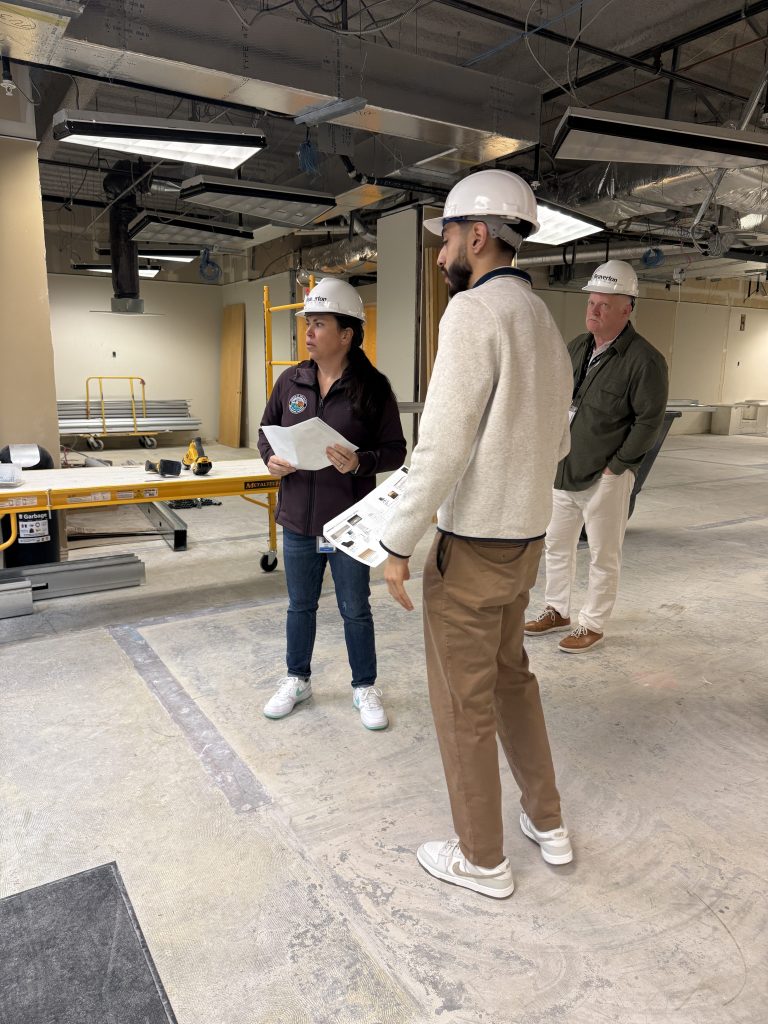Beaverton named global finalist in Bloomberg Mayors Challenge for innovative housing plan
Published 5:00 am Sunday, July 20, 2025

- Beaverton Mayor Lacey Beaty proposes new communal housing plan for the city. (Courtesy photo: Mark Lewis)
Beaverton is stepping onto the world stage with an ambitious plan to reshape how cities approach housing.
Beaverton Mayor Lacey Beaty is pioneering a groundbreaking cooperative housing project aimed at addressing senior housing needs and creating intergenerational community spaces.
Beaty announced in June that the city of Beaverton has been named one of 50 global finalists in the Bloomberg Philanthropies 2025 Mayors Challenge, a competition that recognizes cities developing solutions to critical urban problems.
Trending
Chosen from a pool of more than 630 applicants across 33 countries, Beaverton was recognized for its proposal to create more affordable, inclusive and community-centered housing solutions. The city will receive $50,000 in funding and access to expert guidance to prototype its idea.
“Housing has become one of the biggest challenges we face in Beaverton,” Beaty said. “We’ve outgrown our legacy as a ‘City of Homes,’ and the market today isn’t delivering enough of the housing types our community needs.”
Deeper community connection
The city’s proposal focuses on expanding “middle housing” — duplexes, triplexes and other multi-unit structures that fit within residential neighborhoods — while also shifting to a model that fosters deeper community connection.
Beaty emphasized the importance of including residents in the planning and design process to ensure new development reflects the needs and values of Beaverton’s diverse population.
The project’s aim is to build a housing system that works for young families just starting out, seniors settling into the next stage of their lives and everyone in between.
“I don’t want to be the mayor that says, ‘raise your family here, but please move somewhere else’ because we lack housing for your next stage of life,” Beaty said.
Trending
The initiative draws inspiration from European-style housing along with local successes like Bridge Meadows — a multigenerational housing project — and aims to transform how cities approach housing challenges by prioritising community and adaptability.
‘Commitment to innovation’
As part of the next phase of the challenge, Beaverton will attend Bloomberg’s “Ideas Camp” this month — an interactive workshop with urban innovation experts and other finalist cities — to refine its proposal. In January 2026, 25 of the 50 finalists will be awarded $1 million each to fully implement their ideas.
City Manager Jenny Haruyama said the recognition affirms Beaverton’s growing reputation as a city willing to take creative risks.
“This recognition is a testament to our commitment to innovation and our dedication to improving the quality of life for all Beaverton residents,” Haruyama said.
Beaverton’s proposal is designed to confront barriers such as restrictive zoning, high construction and land costs and a lack of housing variety — all while prioritizing walkability, community voice and shared public space.
“The government moves at the pace in which we allow it. And so right now, I’m trying to push the government at a pace that they’re not accustomed to,” Beaty said.
Benefiting cities across the country
While the final plan is still in development, Beaty added she hopes the process will produce a “playbook” that could benefit cities across the country.
The Mayors Challenge, now in its sixth year, seeks to highlight the power of local innovation in solving complex global challenges. This year’s themes range from housing and public health to waste management and social inclusion, with finalists representing more than 80 million residents worldwide.
Bloomberg Philanthropies’ Government Innovation lead, James Anderson, praised this year’s finalists for their ambitious yet feasible ideas.
“These Mayors Challenge finalists stand out because they’re designing solutions that reckon with the complexity of implementation and the urgency of their residents’ needs. Their proposals reflect a new standard for public sector achievement,” he said.
According to Beaty, if Beaverton’s proposal is selected for full funding in January, the city could become a national model for housing reform.







